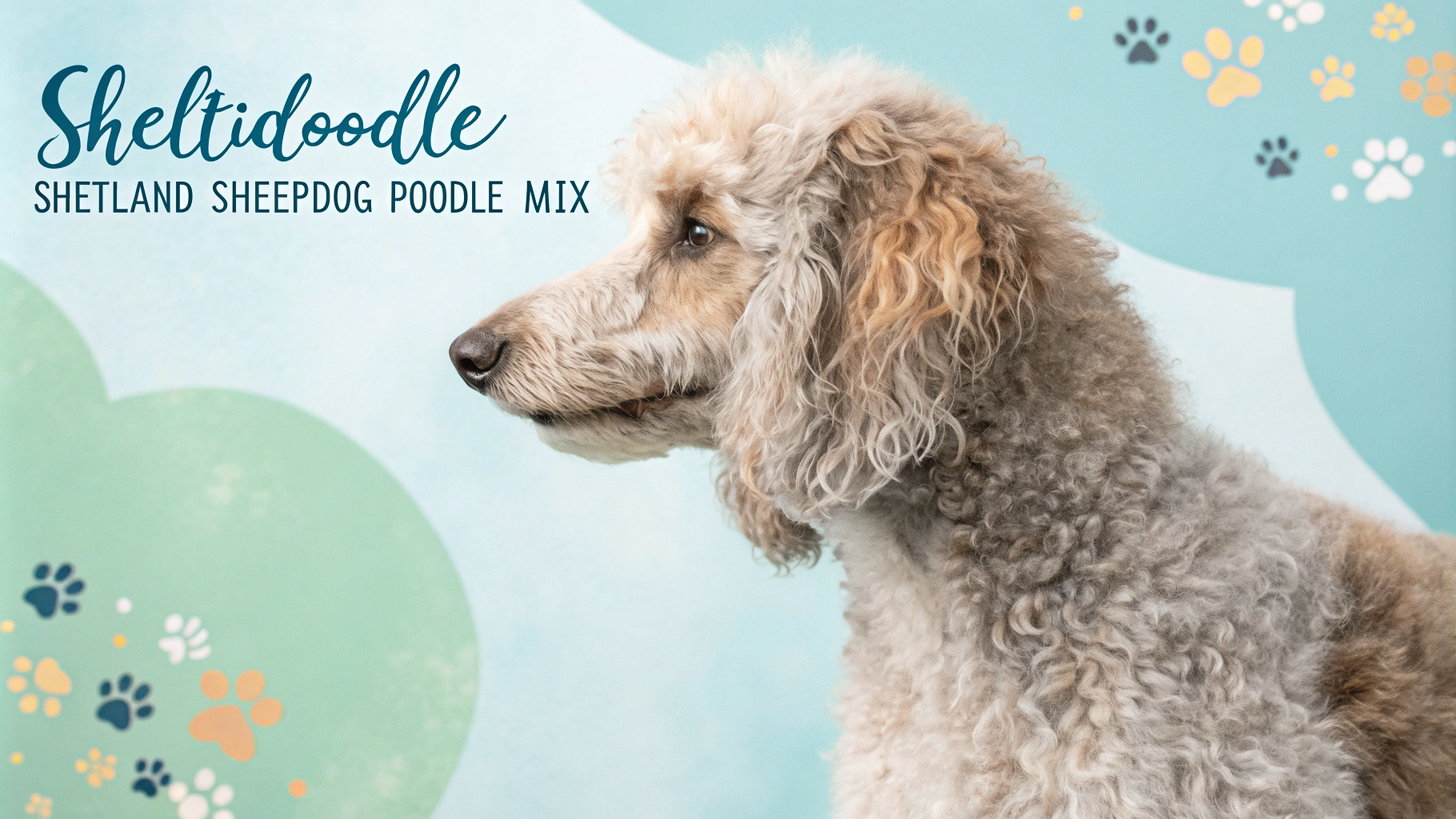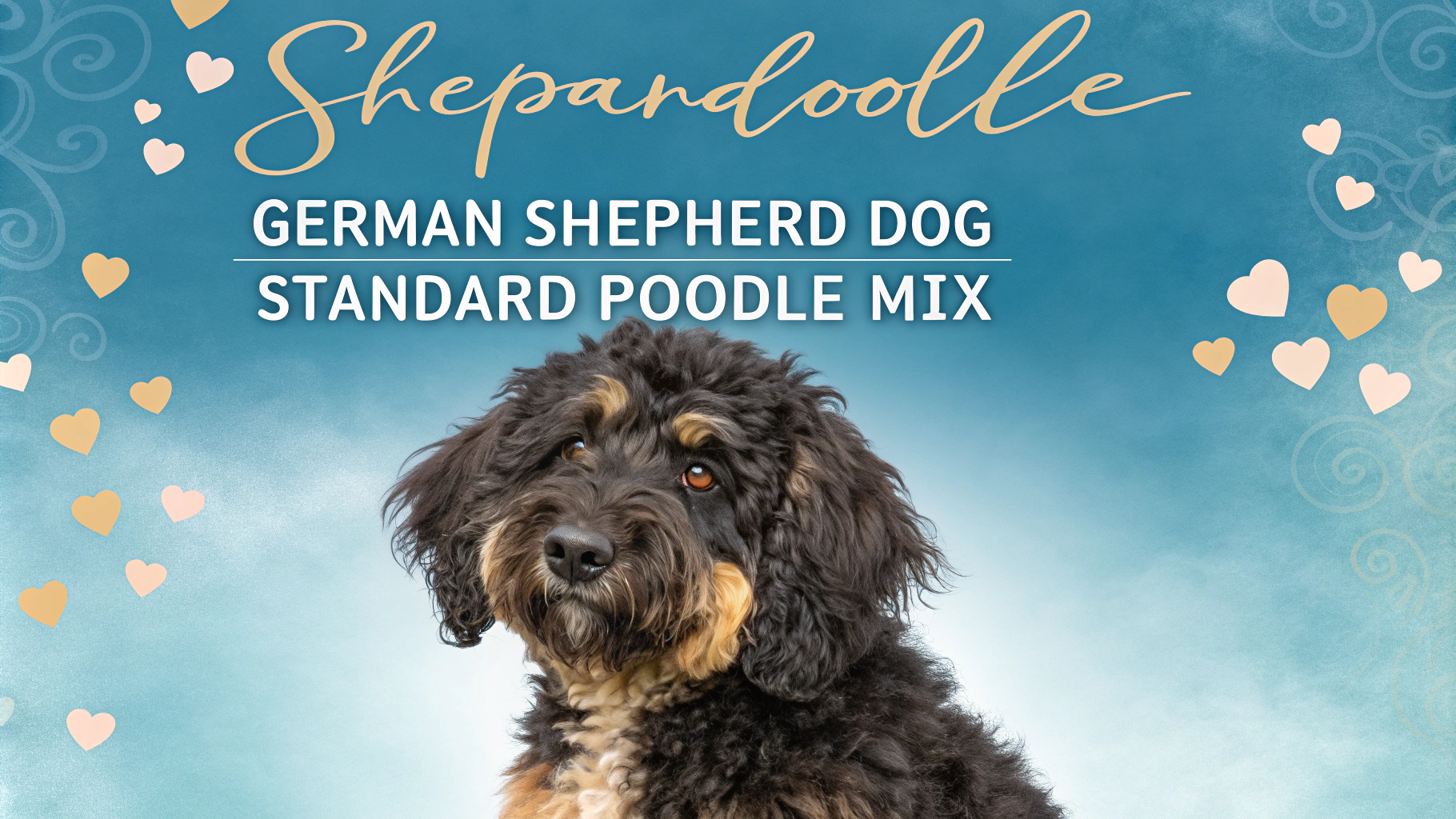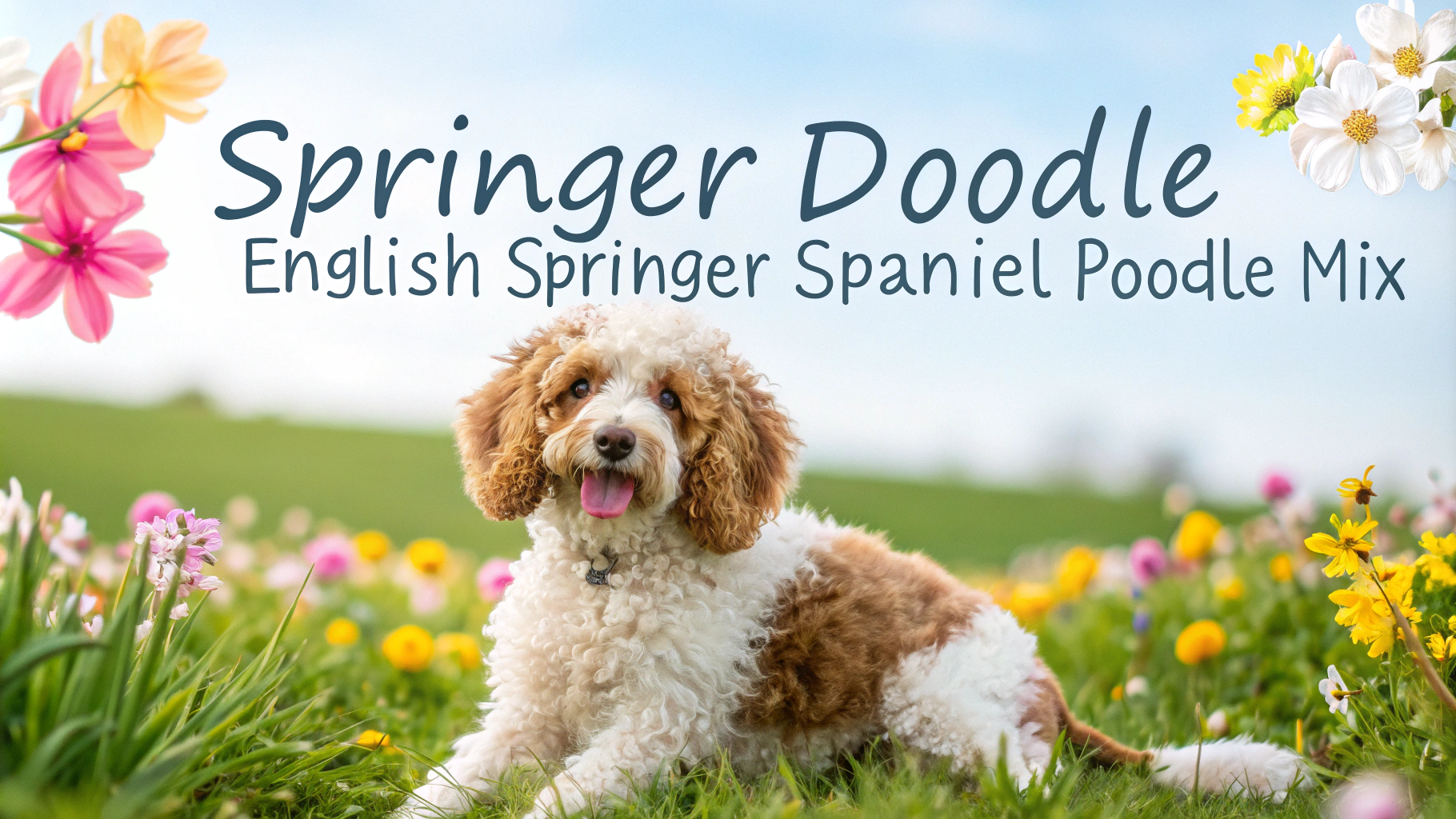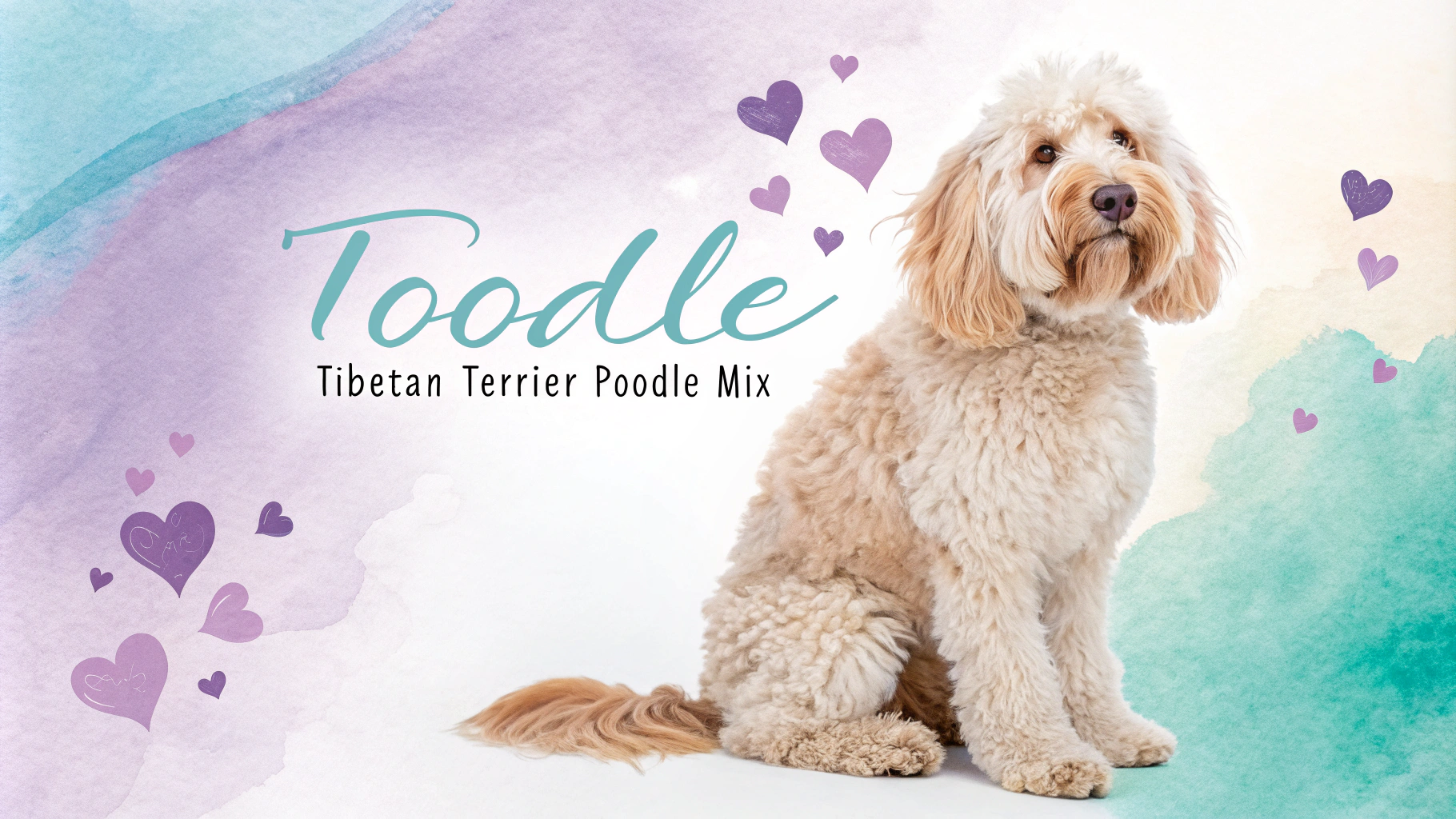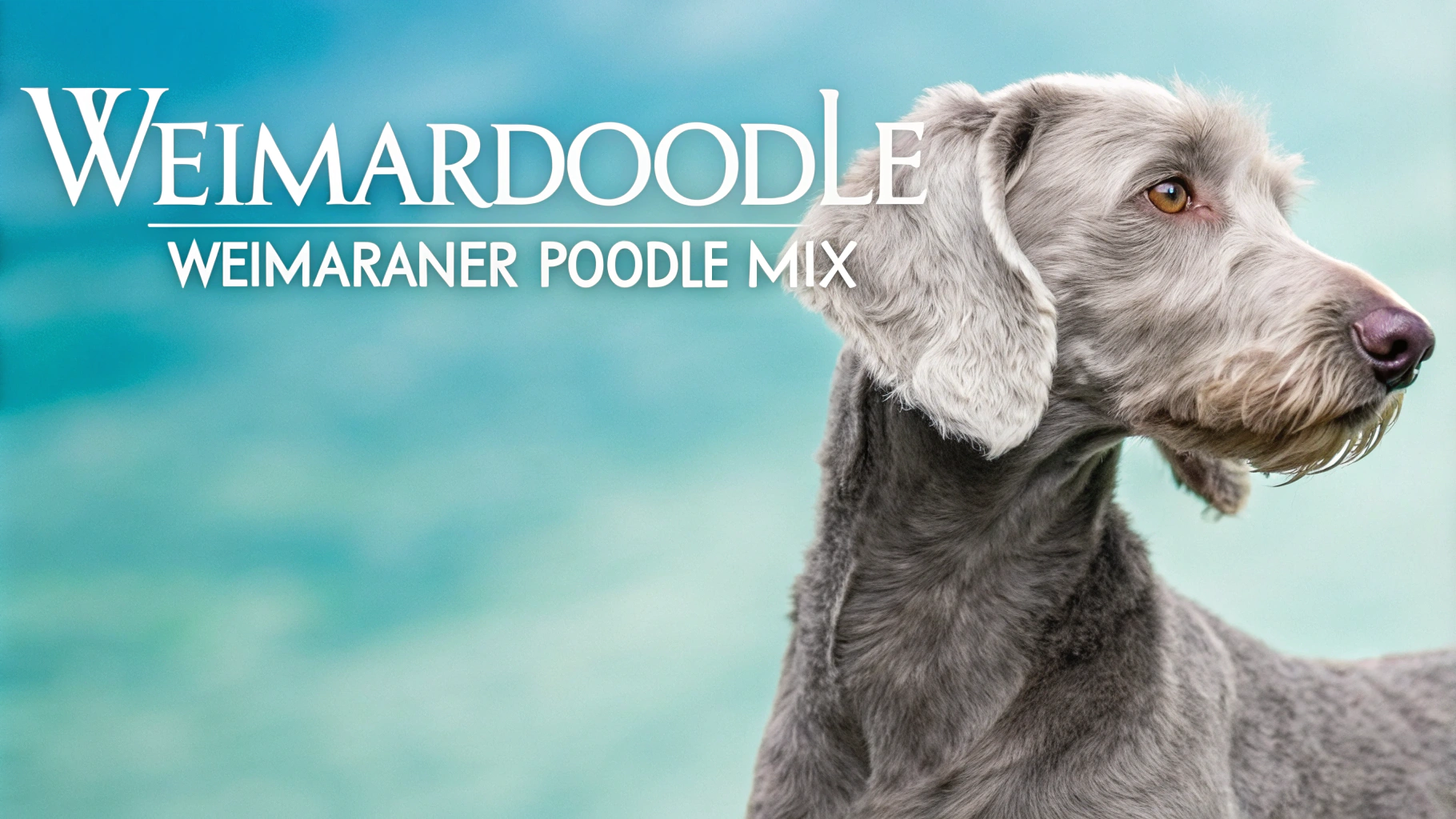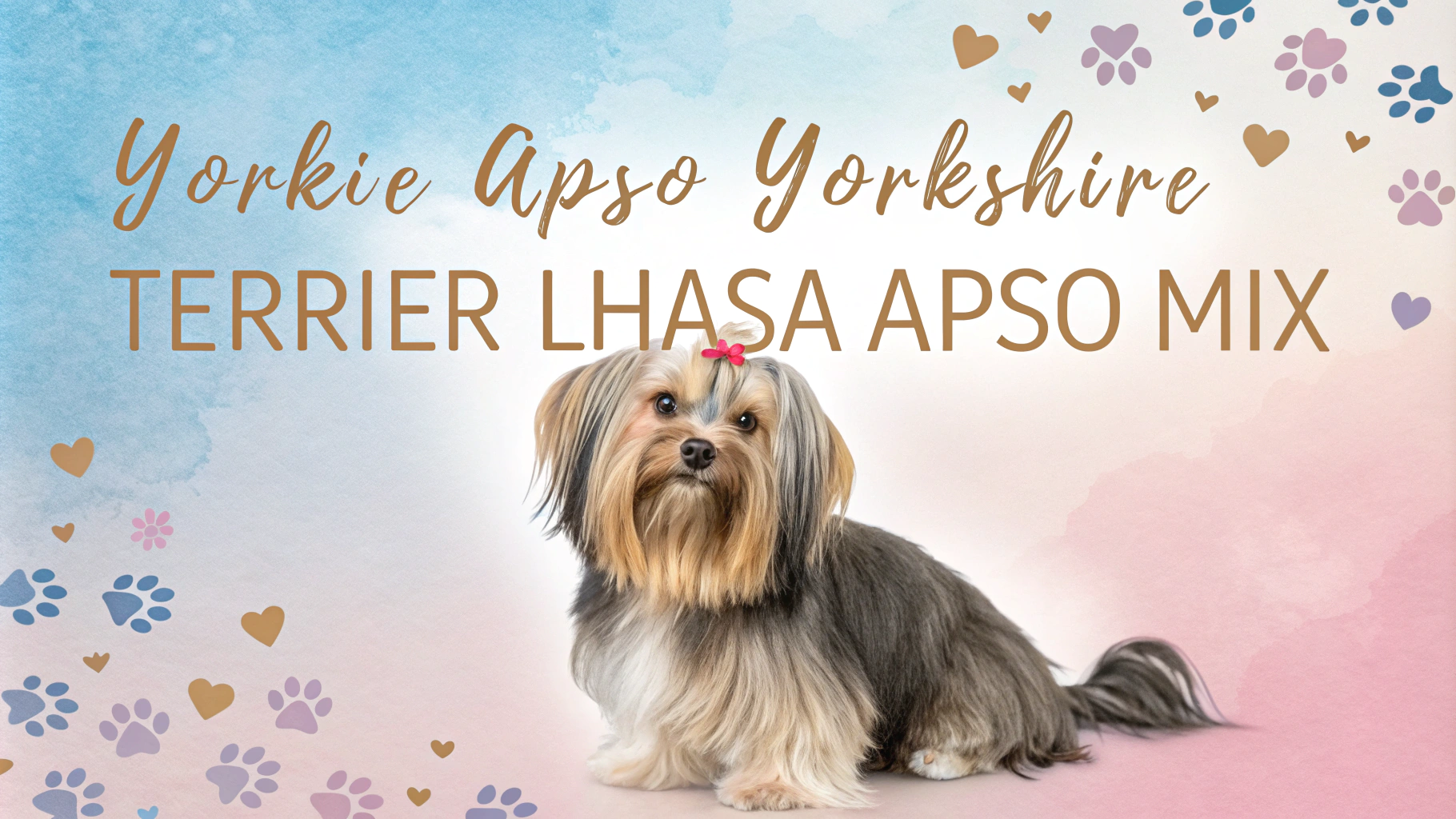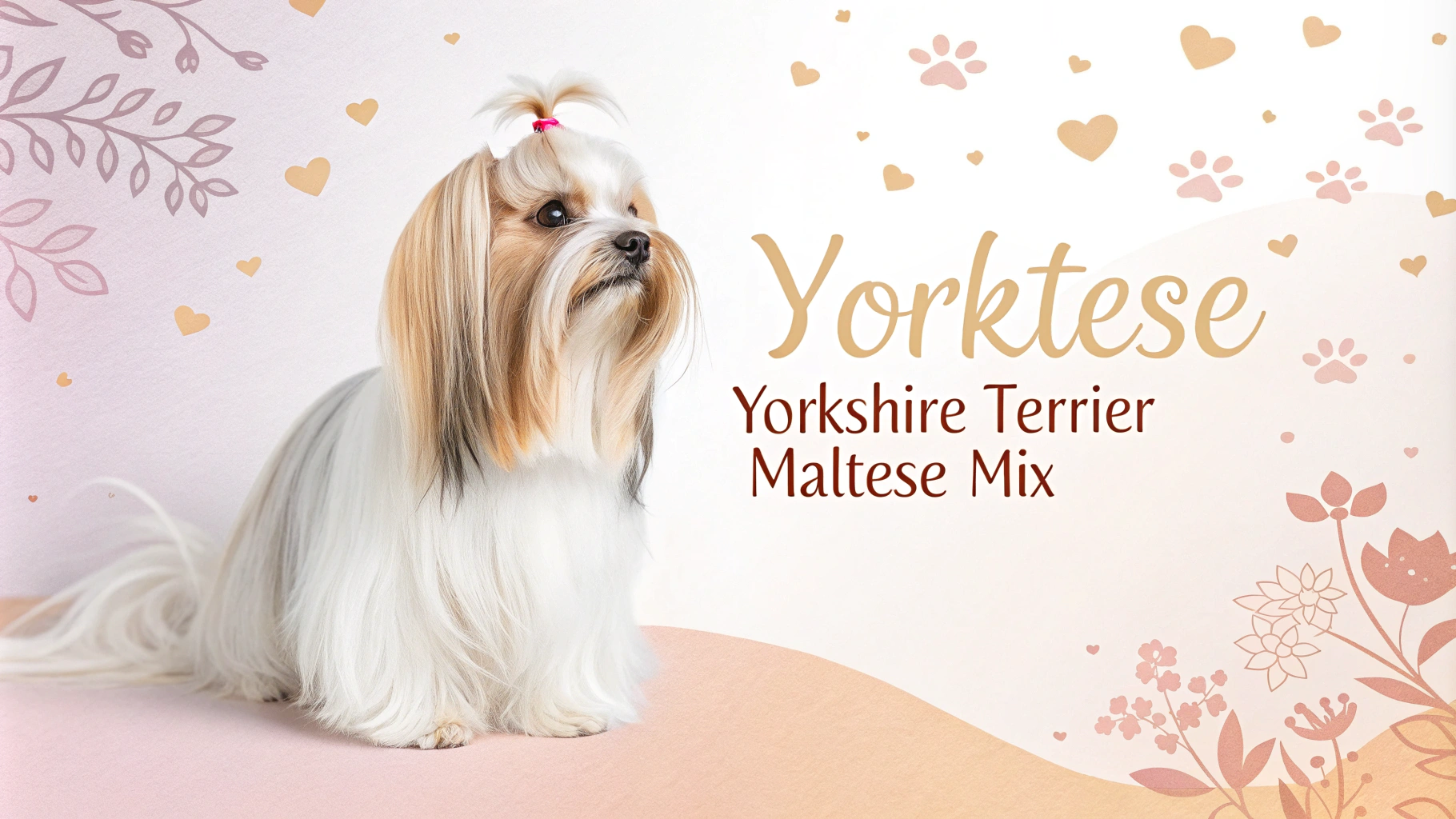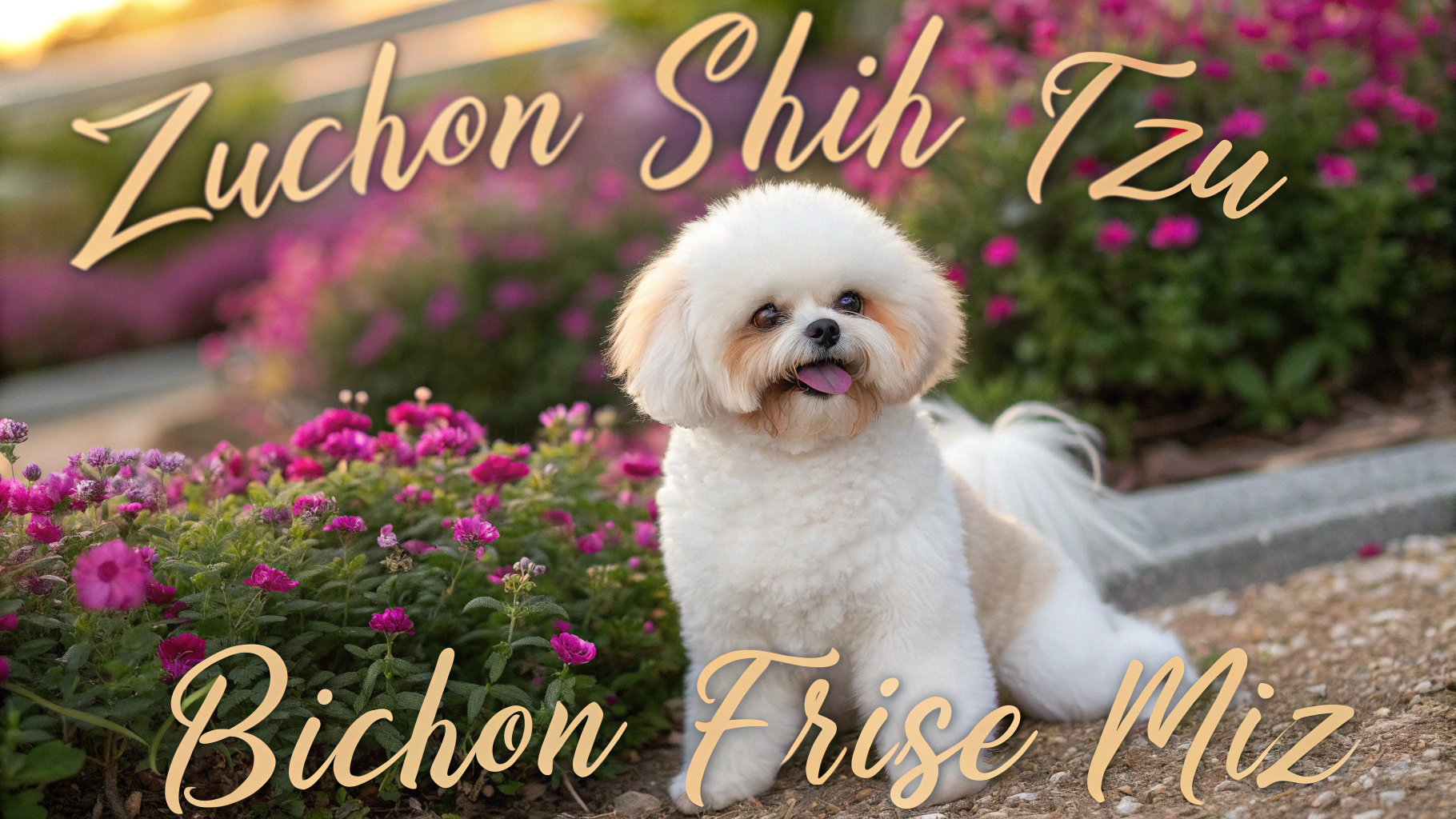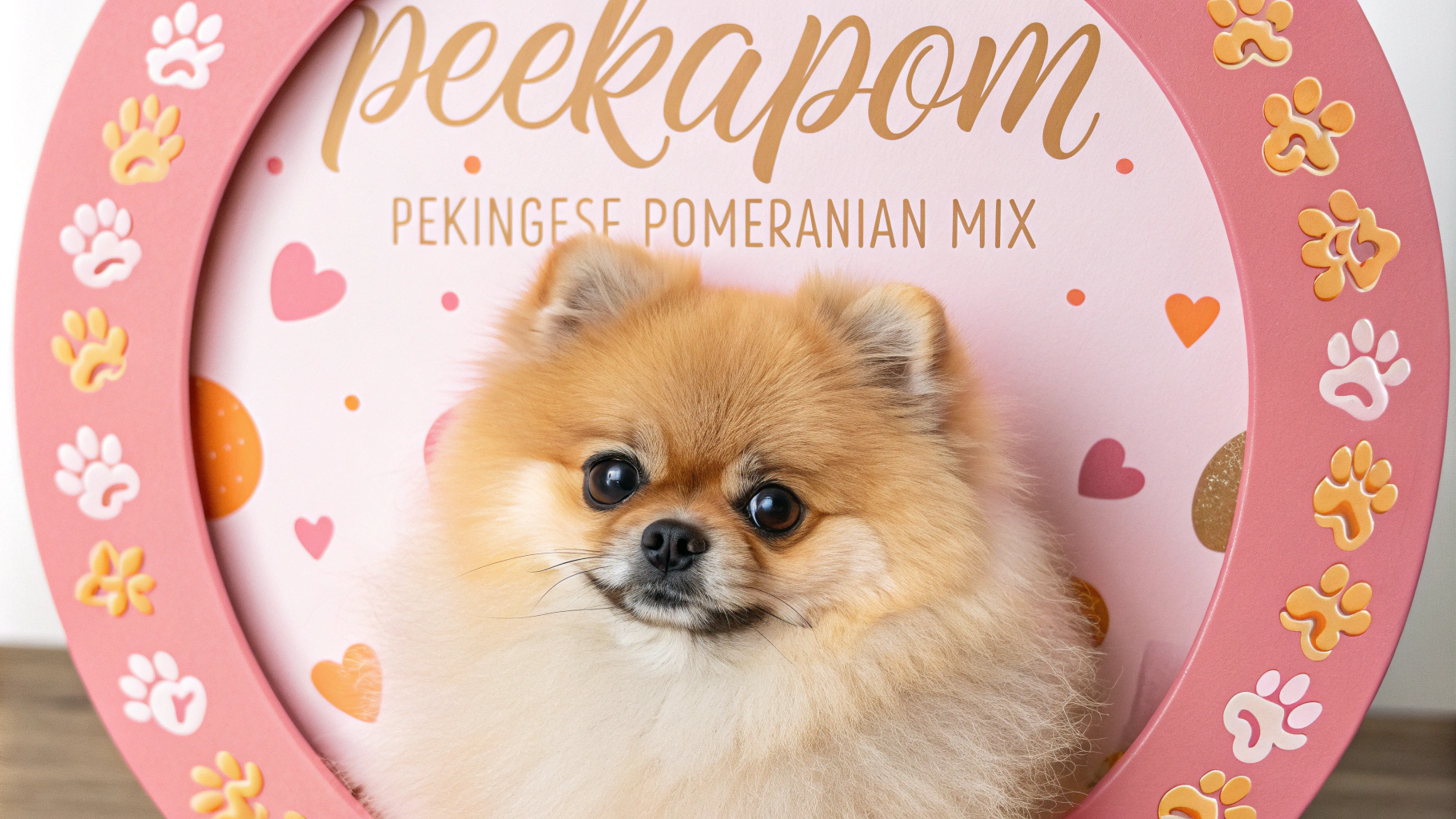The Golden Saint is a mixed breed dog resulting from crossing a Saint Bernard with a Golden Retriever. This large, gentle giant combines the best traits of both parent breeds, creating a loving and loyal family companion. Golden Saints are known for their friendly nature, intelligence, and adaptability to various living situations. While not a purebred dog, this mix has gained popularity due to its wonderful temperament and striking appearance.
Key Facts
- Size: Large to giant (24-30 inches tall, 70-140 pounds)
- Lifespan: 10-12 years
- Coat: Dense, medium to long, water-resistant
- Colors: Golden, red, mahogany, often with white markings
- Energy Level: Moderate
- Trainability: High
- Good with Children: Excellent
- Good with Other Pets: Generally good
Character Traits
Golden Saints inherit a blend of personality traits from their parent breeds, resulting in a gentle, affectionate, and patient dog. They are known for their friendly and outgoing nature, often greeting strangers with enthusiasm. These dogs are highly intelligent and eager to please, making them relatively easy to train. Golden Saints are typically good with children and other pets, thanks to their calm and tolerant demeanor.
Despite their large size, they are often described as “gentle giants” due to their soft and loving nature. They tend to be protective of their families without being aggressive, making them excellent watchdogs. Golden Saints are generally adaptable and can thrive in various living situations, although they do best in homes with ample space.
These dogs have a moderate energy level, enjoying both playtime and relaxation. They often inherit the Golden Retriever’s love for water and retrieving, as well as the Saint Bernard’s desire to be close to their family. Golden Saints are known for their patience and tolerance, making them excellent companions for families with children or other pets.
History & Origins
The Golden Saint is a relatively new mixed breed, likely originating within the last few decades as designer dog breeds gained popularity. While the exact origins of the Golden Saint are not well-documented, we can look to the histories of its parent breeds to understand its background.
The Saint Bernard, originating in the Swiss Alps, was initially bred by monks for rescue work in the treacherous mountain passes. These dogs were renowned for their strength, endurance, and ability to navigate through deep snow. Over time, they transitioned from working dogs to beloved family companions.
The Golden Retriever, on the other hand, was developed in Scotland in the mid-19th century by Lord Tweedmouth. These dogs were bred to be excellent hunting companions, particularly for retrieving game from both land and water. Their intelligence, trainability, and friendly nature quickly made them popular as family pets as well.
The combination of these two breeds aims to create a dog with the gentle and patient nature of the Saint Bernard, along with the intelligence and eagerness to please of the Golden Retriever. While not recognized by major kennel clubs as a distinct breed, the Golden Saint has gained a following among dog lovers who appreciate its unique blend of characteristics.
Health Concerns
Golden Saints may inherit health issues common to both parent breeds. These can include:
- Hip and elbow dysplasia: A genetic condition affecting joint development
- Bloat: A life-threatening condition where the stomach fills with gas and twists
- Eye problems: Including cataracts and progressive retinal atrophy
- Heart issues: Such as subvalvular aortic stenosis
- Cancer: Both parent breeds have higher cancer rates, particularly lymphoma and hemangiosarcoma
Regular veterinary check-ups, maintaining a healthy weight, and genetic screening can help mitigate these risks. Owners should be aware of bloat symptoms and seek immediate veterinary care if suspected.
Exercise Needs
Golden Saints are energetic dogs that require regular exercise to maintain their physical and mental well-being. They typically need:
- Daily walks: 1-2 hours of moderate to vigorous exercise
- Playtime: Interactive games like fetch or tug-of-war
- Swimming: Many enjoy water activities, inherited from both parent breeds
- Mental stimulation: Puzzle toys and training sessions to keep their minds engaged
Exercise should be adjusted based on age, health status, and individual energy levels. Puppies and senior dogs may require less intense activity. Always monitor for signs of fatigue or overheating, especially in warm weather.
Space Requirements
Golden Saints are large dogs that thrive in spacious environments. Ideal living conditions include:
- House with a yard: Provides ample space for exercise and play
- Secure fencing: To prevent wandering and ensure safety
- Indoor space: Sufficient room to move around comfortably and rest
- Access to shade: Important for temperature regulation, especially for their thick coats
While they can adapt to apartment living with sufficient exercise, it’s not ideal. These dogs do best with room to roam and explore. They also appreciate having a designated sleeping area and space for their belongings.
Nutrition & Feeding
Proper nutrition is crucial for maintaining the health and longevity of Golden Saints. Key considerations include:
- High-quality dog food: Choose a brand formulated for large breeds
- Portion control: Follow feeding guidelines based on age, weight, and activity level
- Meal frequency: 2-3 meals per day for adults, more frequent for puppies
- Supplements: Glucosamine and chondroitin may benefit joint health
- Fresh water: Always available to prevent dehydration
Avoid overfeeding to prevent obesity, which can exacerbate joint issues. Consult with a veterinarian to develop a tailored nutrition plan, especially for dogs with specific health concerns or dietary needs. Monitor weight regularly and adjust food intake as necessary.
Grooming Tips
Golden Saints have a thick double coat that requires regular grooming to keep it healthy and manageable. Brush your dog at least 2-3 times a week using a slicker brush and metal comb to remove loose fur and prevent matting. During shedding seasons (spring and fall), daily brushing may be necessary. Bathe your Golden Saint every 6-8 weeks or as needed, using a mild dog shampoo.
Pay special attention to the following areas:
- Ears: Check and clean weekly to prevent infections
- Eyes: Wipe gently with a damp cloth to remove any discharge
- Nails: Trim monthly or as needed
- Teeth: Brush 2-3 times a week to maintain good oral hygiene
Be prepared for moderate to heavy shedding, especially during seasonal changes. Regular grooming sessions will help reduce loose fur around your home and strengthen the bond between you and your dog.
Training Approach
Golden Saints are intelligent and eager to please, making them generally easy to train. However, they can be stubborn at times, so consistency and patience are key. Start training and socialization early to ensure your dog develops good manners and becomes well-adjusted.
Use positive reinforcement techniques, such as:
- Praise
- Treats
- Playtime
Focus on basic obedience commands like sit, stay, come, and heel. Incorporate training into daily activities and keep sessions short and fun to maintain your dog’s interest. Golden Saints excel in various activities, including:
- Agility
- Obedience trials
- Therapy work
- Search and rescue
Address any potential behavioral issues, such as jumping or excessive barking, early on. Be patient with housetraining, as larger breeds may take longer to develop bladder control. Crate training can be beneficial for both housetraining and providing a safe space for your dog.

